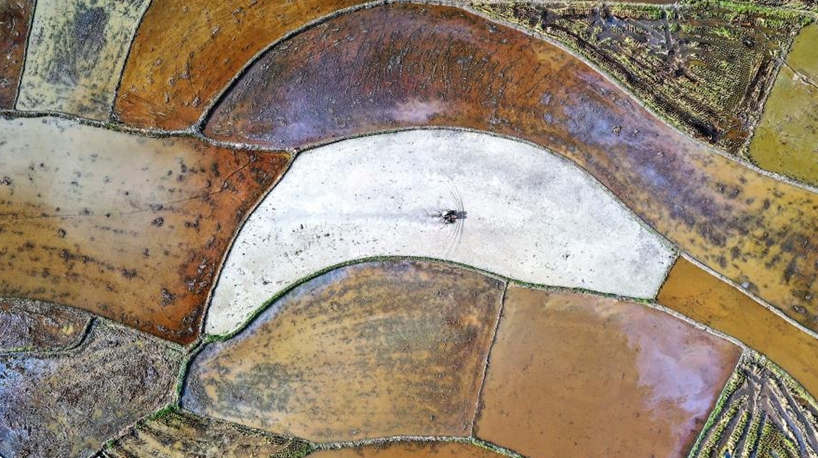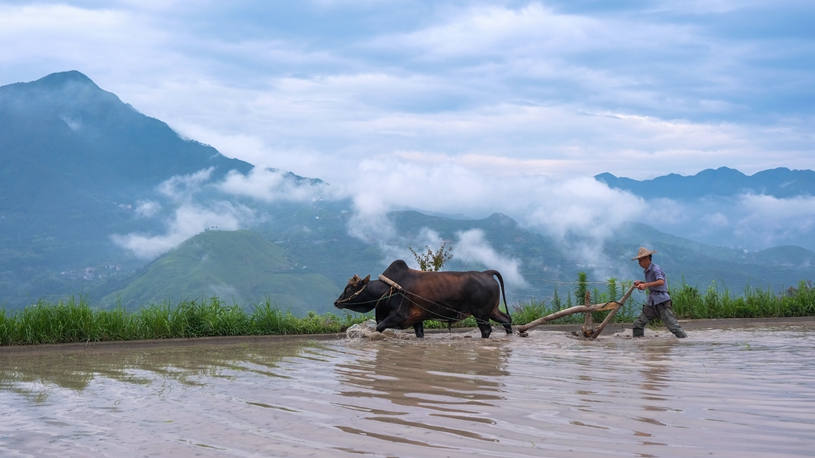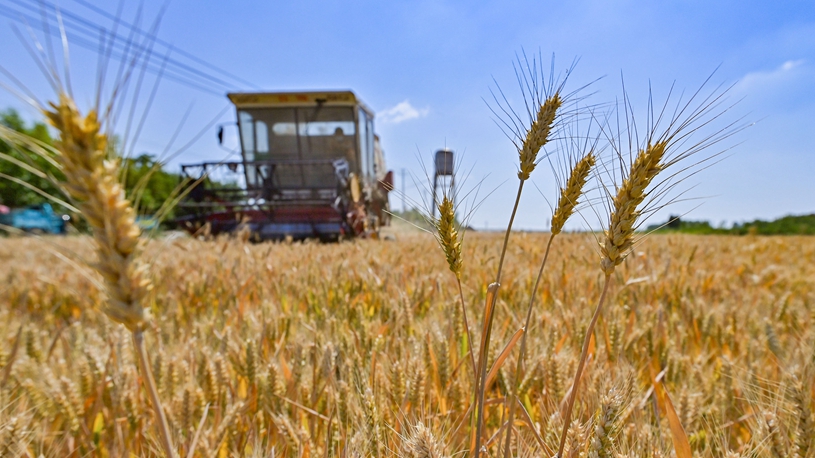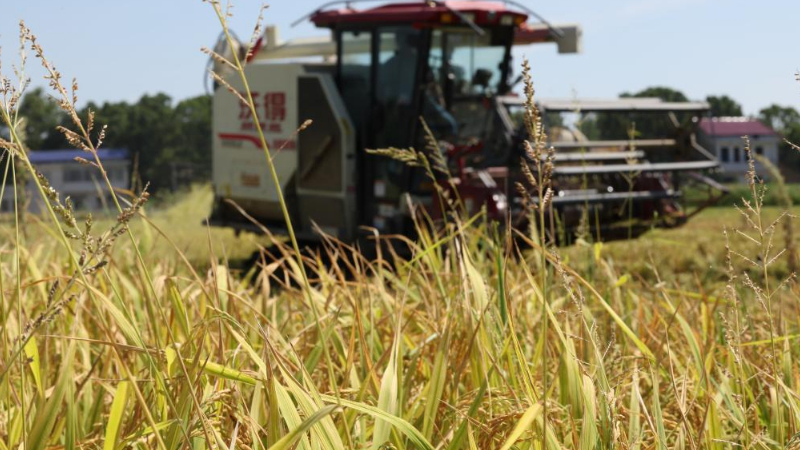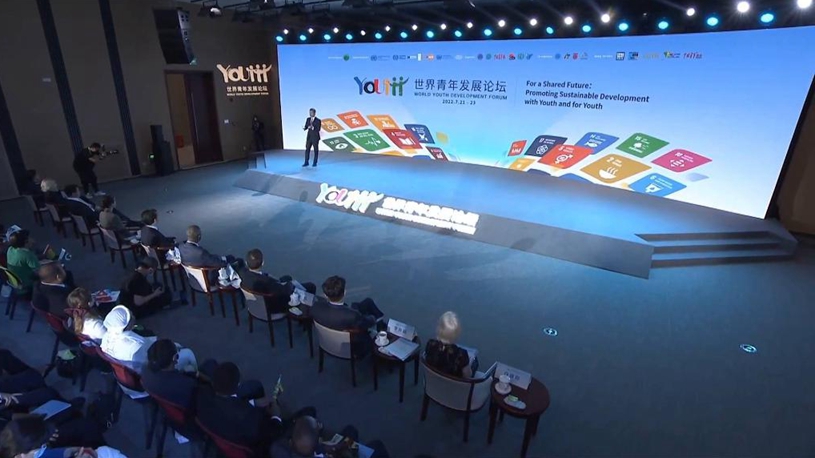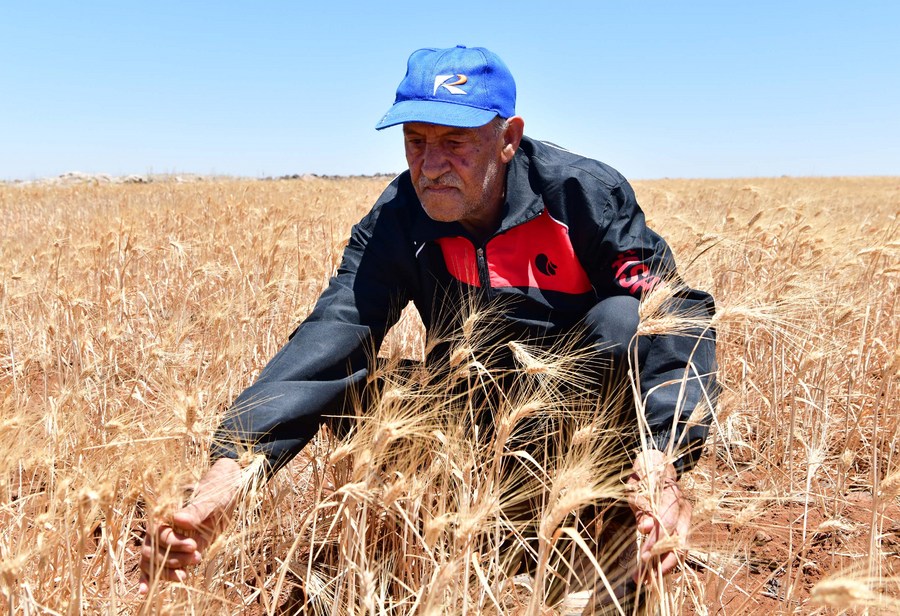
Nayef Saymoua, a 62-year-old farmer, harvests wheat in a wheat field in Syria's southern province of Sweida, July 2, 2022. (Photo by Ammar Safarjalani/Xinhua)
Before the current crisis, Syrian people preferred to leave their villages, and head to the capital for making a better living but in light of the high prices, the flow has reversed. Instead of leaving for big cities, people are now returning to their towns and farmlands.
By Hummam Sheikh Ali
SWEIDA, Syria, July 25 (Xinhua) -- Amid the tough economic situation in Syria, which was caused by the U.S. sanctions and the global food crisis, people are returning to farms to make a living and feed their families on their own without waiting for external aid.
In Sweida province in southern Syria, Nayef Saymoua, a 62-year-old farmer, has planted his farmland with wheat to sell part of it and keep some for his family and relatives.
Wearing a cap and long boots, Saymoua told Xinhua how important it is for farmers to return to their lands because the situation in the country is making it hard for everyone to make a good living or even secure food amid the global food crisis.
Saymoua said the land preserves the dignity of its owner, noting that farmers are returning to the farming business now that the Syrian economy is stalemated as the result of the prolonged war and the suffocating U.S. sanctions.
"Without your land, you would be hungry, and that's why people are now getting back to their farmlands to work hard because we have no other choice," he said.
He stressed that people should start learning how to achieve self-reliance, saying that farmers should be the first to make that given the fact that they have farms on which they can plant everything they need.
"The situation is getting worse, and we can't but rely on ourselves," the sturdy farmer said.
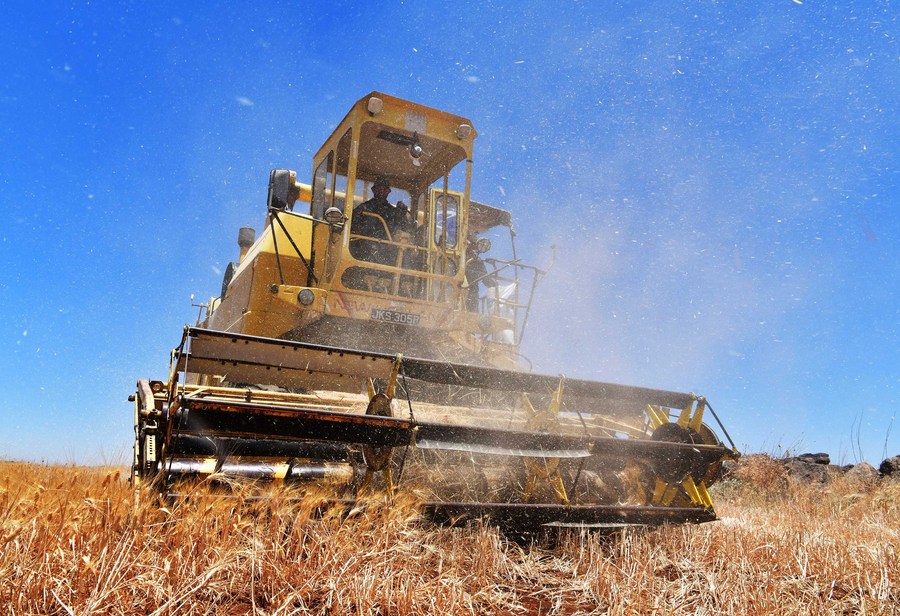
A farmer operates a harvester in a wheat field in Syria's southern province of Sweida, July 2, 2022. (Photo by Ammar Safarjalani/Xinhua)
The man said he had chosen this year to plant wheat due to the fact that major wheat-rich areas in Syria had fallen under the control of the U.S. forces and allied local militias.
"We are here doing our best to protect ourselves from the so-called global food crisis," he said.
Raouf Yahya Ezz El Din, another farmer, told Xinhua that nowadays there is reverse migration from cities to the countryside, as people are becoming more aware of the importance of farming.
He said that before the current crisis, people preferred to leave their villages, and head to the capital for making a better living but in light of the high prices, the flow has reversed. Instead of leaving for big cities, people are now returning to their towns and farmlands.
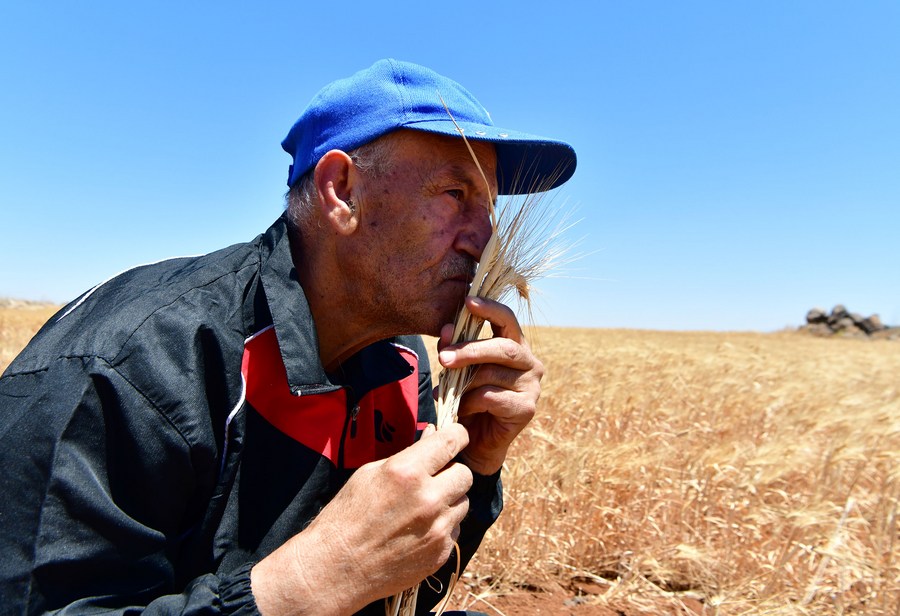
Nayef Saymoua, a 62-year-old farmer, smells ears of wheat in a wheat field in Syria's southern province of Sweida, July 2, 2022. (Photo by Ammar Safarjalani/Xinhua)
The 53-year-old farmer said the global food crisis has been a good lesson for the farmers to return to their farmlands.
He stressed that "the land is the honor and this land is giving us and making us rely on ourselves, not on other countries."
The United Nations said in February that Syria ranked first among the 10 most food-insecure countries in the world in 2022, with 12 million people suffering from limited or uncertain access to food, as the country's economy is "spiraling further downward."
In addition, the Russia-Ukraine conflict that broke out early this year has impacted the global wheat supply, creating a shortage of wheat supply for Syria, which last year imported 1.5 million tonnes of wheat, mainly from Russia. ■


